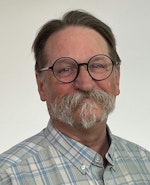Military researchers seek to improve zero-knowledge proofs technology in trusted computing cryptography
ARLINGTON, Va. – U.S. military researchers are trying to enhance information security and trusted computing by advancing zero-knowledge proof technology to enable cryptography in complex military applications.
Officials of the U.S. Defense Advanced Research Projects Agency (DARPA) in Arlington, Va., issued a broad agency announcement on Friday (HR001119S0076) for the Securing Information for Encrypted Verification and Evaluation (SIEVE) project.
SIEVE seeks advance the state of the art in zero-knowledge proofs to enable complex military applications. A zero-knowledge proof in cryptography enables one party to prove that he knows a particular without conveying any secret information; the challenge is proving possession of sensitive information without revealing the information itself.
Towards that goal, SIEVE will use zero knowledge proofs to verify military capabilities without revealing the sensitive details. The project also will focus on increasing the efficiency of zero knowledge proof technology to enable large, complex proof statements -- such as billions of gates or more -- where the statement consists of probabilistic and indeterminate-branching conditions.
Zero-sum proofs typically are used to day for cryptocurrency transactions. This technology, however, is insufficient for complex proof statements in which any superlinear complexity could create an insurmountable efficiency bottleneck.
SIEVE focuses on zero-knowledge proofs for statements about cybersecurity and cyberspace operations, which historically have been difficult for the U.S. military to discuss in a verifiable way without releasing sensitive information.
SIEVE will demonstrate the feasibility of encoding complex military statements into intermediate representations that can help create efficient zero-knowledge proofs for those statements.
The SIEVE program is organized into three phases -- an 18-month first phase, an 18-month second phase, and a 12-months third phase.
The first phase emphasizes ways to demonstrate feasibility of encoding military statements into intermediate representations, and for giving efficient zero-knowledge proofs in military scenarios. The second phase emphasizes an integrated pipeline to create zero-knowledge proofs from intermediate-representation-encoded statements. The third phase emphasizes optimization and scaling techniques.
The program is divided into three technical areas: constructing useful zero-knowledge statements; building efficient zero-knowledge proof generation compilers; and post-quantum zero knowledge.
Constructing useful zero-knowledge statements focuses on generating encodings of real-world military problem statements into an intermediate representation to generate an efficient zero-knowledge proof.
Building efficient zero-knowledge proof generation compilers focuses on generating new theory and software to generate efficient zero-knowledge proofs from an intermediate representation-encoded problem statement. DARPA officials say they expect to award several contracts for each technical area.
Related: Trusted computing: it's not just cybersecurity anymore
Companies interested should submit abstracts that answer four questions: What is the proposed work attempting to accomplish; how is it done today, and what are the limitations; who will care and what will the impact be if the work is successful; and how much will it cost, and how long will it take?
Companies should upload abstracts no later than 31 July 2019, and full proposals no later than 20 Sept. 2019, to the DARPA BAA submission website at https://baa.darpa.mil.
Email question or concerns to Joshua Baron, the DARPA SIEVE program manager, at [email protected].
More information is online at https://www.fbo.gov/spg/ODA/DARPA/CMO/HR001119S0076/listing.html.

John Keller | Editor-in-Chief
John Keller is the Editor-in-Chief, Military & Aerospace Electronics Magazine--provides extensive coverage and analysis of enabling electronics and optoelectronic technologies in military, space and commercial aviation applications. John has been a member of the Military & Aerospace Electronics staff since 1989 and chief editor since 1995.

